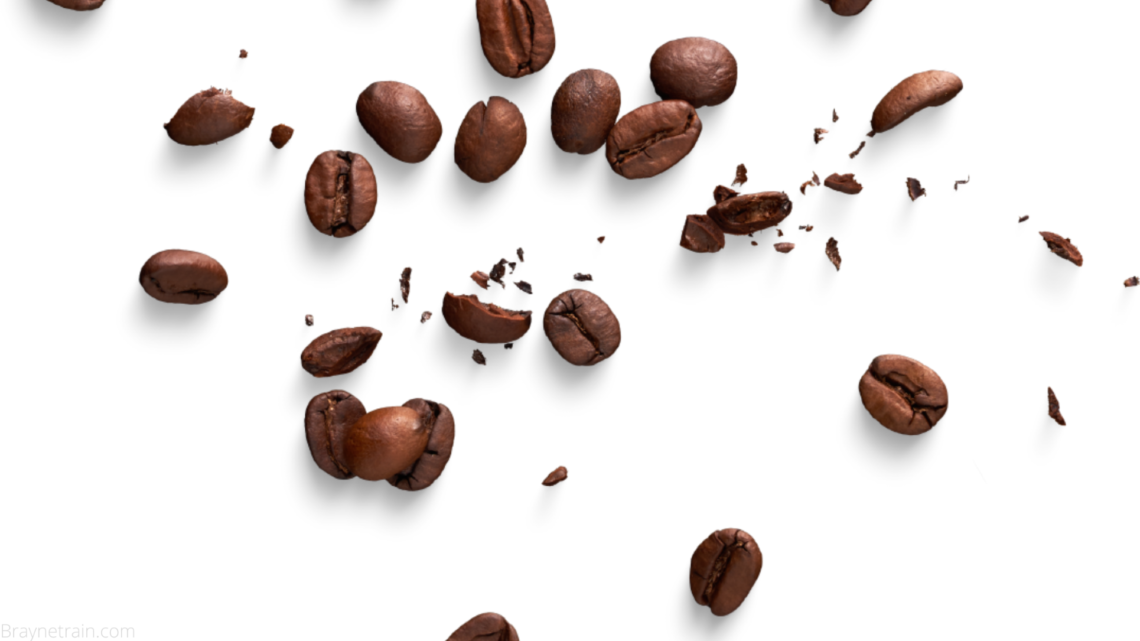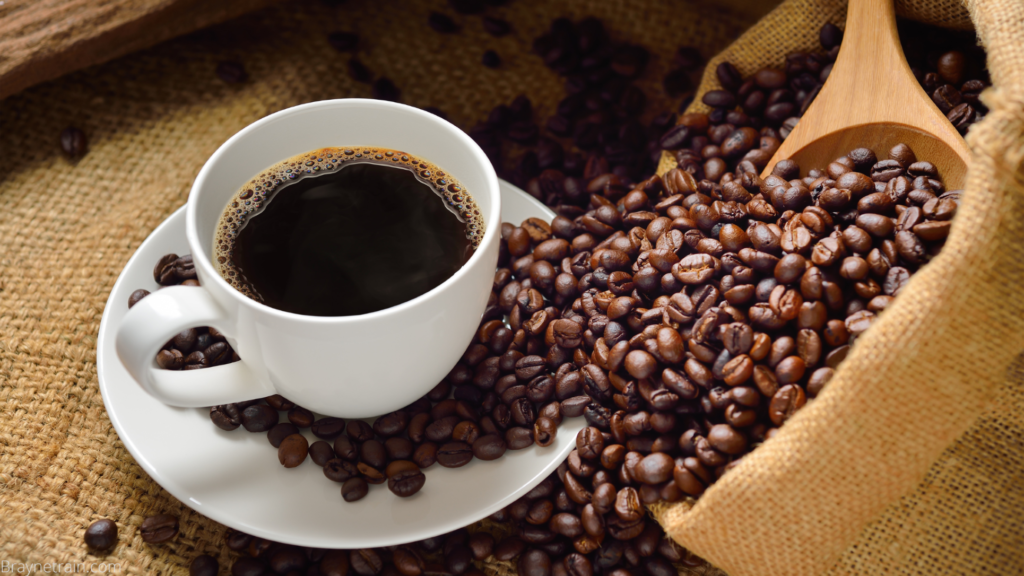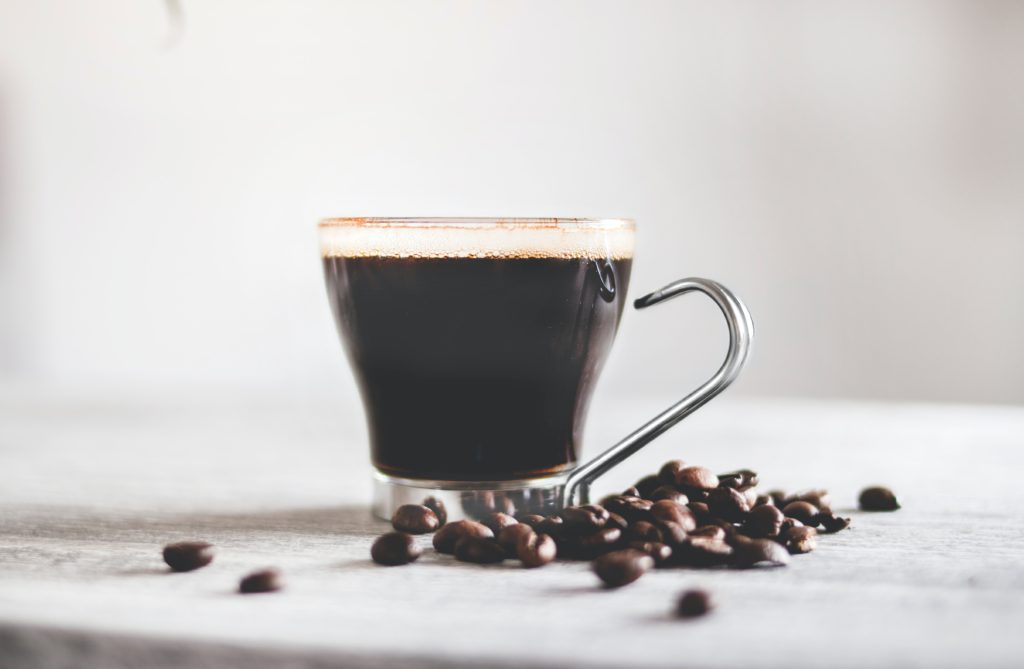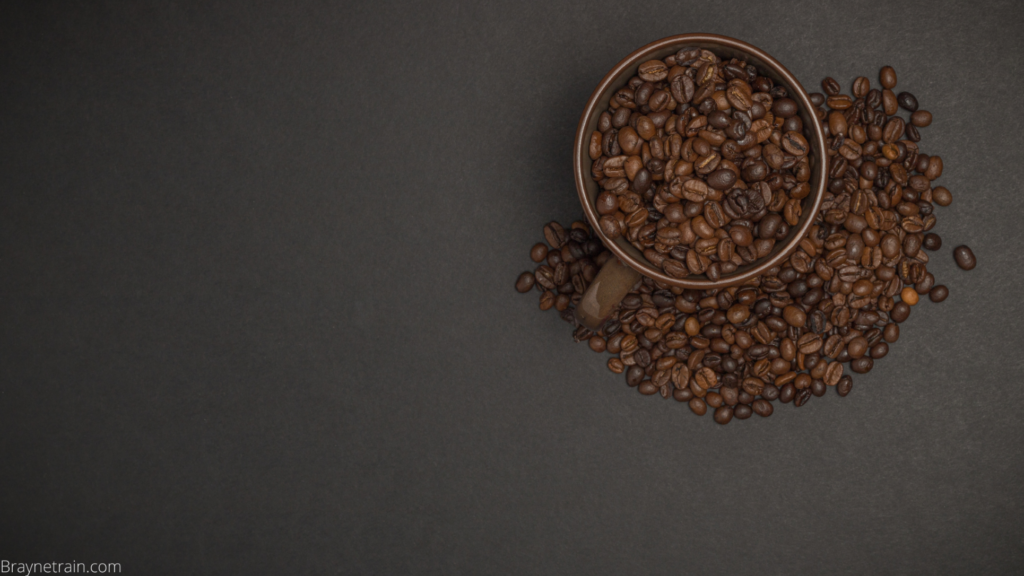
When Is The Best Time To Drink Coffee For Weight Loss?
You have probably heard that black coffee can help you lose weight and now might be wondering when would be the best time to drink black coffee for the best weight loss results.
Well, we are here to help answer that question and give you a much more detailed explanation of coffee’s amazing health benefits.
Multiple studies have shown that drinking black Coffee can boost metabolism and fat loss.
As a general rule, the best time to drink coffee for weight loss is one hour after waking up in the morning and one hour after lunch in the afternoon. This way, you let cortisol levels drop before you take in caffeine. Lower cortisol helps enhance the fat-loss effect of coffee.
To learn more about coffee’s effect on weight loss and overall health, continue reading!

What is Coffee?
Coffee beans are the seeds of coffee plants; the coffee you love is made by grinding the beans and brewing them with hot water.
In fact, Coffee is one of the most popular drinks globally, and it contains caffeine. Coffee beans come in different colors like black, brown, and green, and they all taste different.
In addition, caffeine is a naturally-occurring stimulant that is found in coffee beans.
When consumed, it helps to increase alertness and wakefulness. Caffeine works by blocking the uptake of a chemical called adenosine, which promotes sleepiness.

why does Black Coffee Help You Lose Weight?
Caffeine, in fact, has been shown to help you lose weight by boosting metabolism.
Also, black coffee promotes fat loss and turns on fat burning on a cellular and hormonal level. Therefore, drinking black coffee can help you burn fat and lose weight.
Fat-Loss
Caffeine turns off the enzyme that stops fat burning from occurring and promotes fat loss.
Drinking black coffee in moderation increases the body’s fat-burning potential. However, caffeine does not burn fat by itself but it makes it easier for the body to burn fat.
Drinking coffee mobilizes fat cells and when fat cells are mobilized, they can be used as energy and get burned off.
Drinking coffee before your workout can help burn more fat due to the presence of more mobilized fat that could be used for energy.
Ketosis
Coffee promotes ketone production.
A study published in the Canadian Journal of Physiology and Pharmacology took a look at 10 participants who went on a 12-hour fast and consumed a normal breakfast after their fast.
One group consumed no coffee, one group drank 1.5 cups of black coffee, and the third group consumed three cups of black coffee.
The group that consumed the most coffee (three cups) with their breakfast had the highest amount of Ketones. This finding indicates that coffee promotes ketogenesis.
When your body is in ketosis, fat is used as energy instead of sugar, and fat-burning occurs faster. Therefore, ketosis results in fast weight loss.
to learn more about how to properly break a fast, click here.

Other Health Benefits of Black Coffee:
Autophagy
Black Coffee promotes Autophagy.
Autophagy is a process in which the body gets rid of old, damaged cells and recycles them. Autophagy has significant health and anti-aging effects.
A study published in The Journal Cell Cycle found that participants who consumed both caffeinated and decaf coffee had a massive increase in their autophagy rate.
Coffee is a rich source of polyphenols, a type of antioxidant found in plants. The polyphenols present in coffee are likely the reason for the promotion of autophagy.
Drinking black coffee during a fast promotes significant autophagy and puts you in a more profound fasting state.
Energy boost
Caffeine is a stimulant that can increase alertness, focus, and energy. Also, black coffee can improve your performance during exercise by providing you with energy and making you more alert.
Drinking coffee 60 minutes before your workout helps mobilize fat and helps your body use the mobilized fat as fuel, which in turn increases fat loss.
To learn more about coffee's health benefits and its effect on energy, click here.

How Much Coffee should you drink daily?
It’s essential to keep in mind that too much coffee can hinder its benefits.
Drinking 1-2 cups of black coffee per day is enough to give you the health benefits discussed in this post.
Also, drinking coffee within 6 hours of going to sleep can result in low-quality sleep, and not enough sleep can result in weight gain.
So be sure to not consume too much coffee towards the end of the day if you want to have a good night’s sleep.
Takeaway
If you’re looking for an easy way to lose some extra weight, black coffee may be your answer. A cup of black coffee has been shown to help the body burn more fat, especially during workouts. Coffee also helps suppress appetite and provides many other health benefits. So if you’re looking for a drink that can help you reach your fitness goals. Thank you for reading!
References
Tabrizi R, Saneei P, Lankarani KB, Akbari M, Kolahdooz F, Esmaillzadeh A, Nadi-Ravandi S, Mazoochi M, Asemi Z. The effects of caffeine intake on weight loss: a systematic review and dos-response meta-analysis of randomized controlled trials. Crit Rev Food Sci Nutr. 2019;59(16):2688-2696. doi: 10.1080/10408398.2018.1507996. Epub 2018 Oct 18. PMID: 30335479.
Pietrocola F, Malik SA, Mariño G, Vacchelli E, Senovilla L, Chaba K, Niso-Santano M, Maiuri MC, Madeo F, Kroemer G. Coffee induces autophagy in vivo. Cell Cycle. 2014;13(12):1987-94. doi: 10.4161/cc.28929. Epub 2014 Apr 25. PMID: 24769862; PMCID: PMC4111762.
Vandenberghe C, St-Pierre V, Courchesne-Loyer A, Hennebelle M, Castellano CA, Cunnane SC. Caffeine intake increases plasma ketones: an acute metabolic study in humans. Can J Physiol Pharmacol. 2017 Apr;95(4):455-458. doi: 10.1139/cjpp-2016-0338. Epub 2016 Nov 25. PMID: 28177691.
Spyridopoulos I, Fichtlscherer S, Popp R, Toennes SW, Fisslthaler B, Trepels T, Zernecke A, Liehn EA, Weber C, Zeiher AM, Dimmeler S, Haendeler J. Caffeine enhances endothelial repair by an AMPK-dependent mechanism. Arterioscler Thromb Vasc Biol. 2008 Nov;28(11):1967-74. doi: 10.1161/ATVBAHA.108.174060. Epub 2008 Aug 28. PMID: 18757291.




